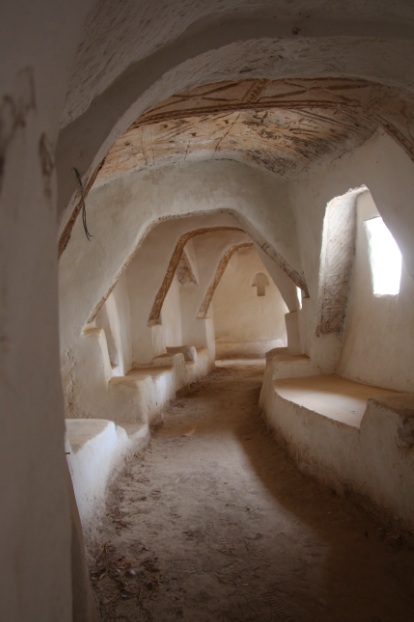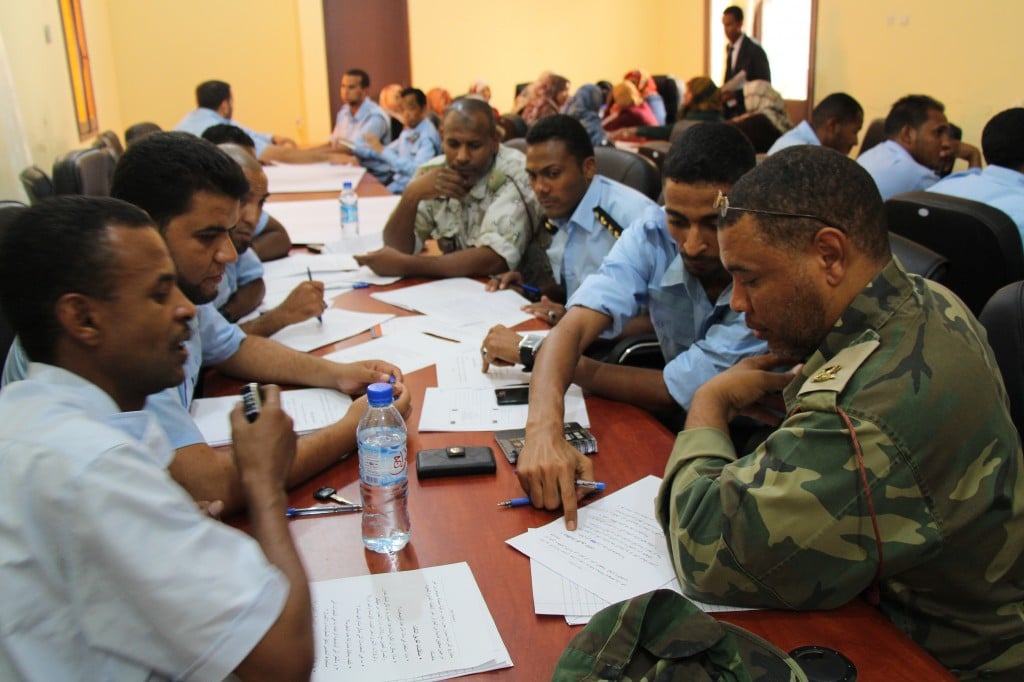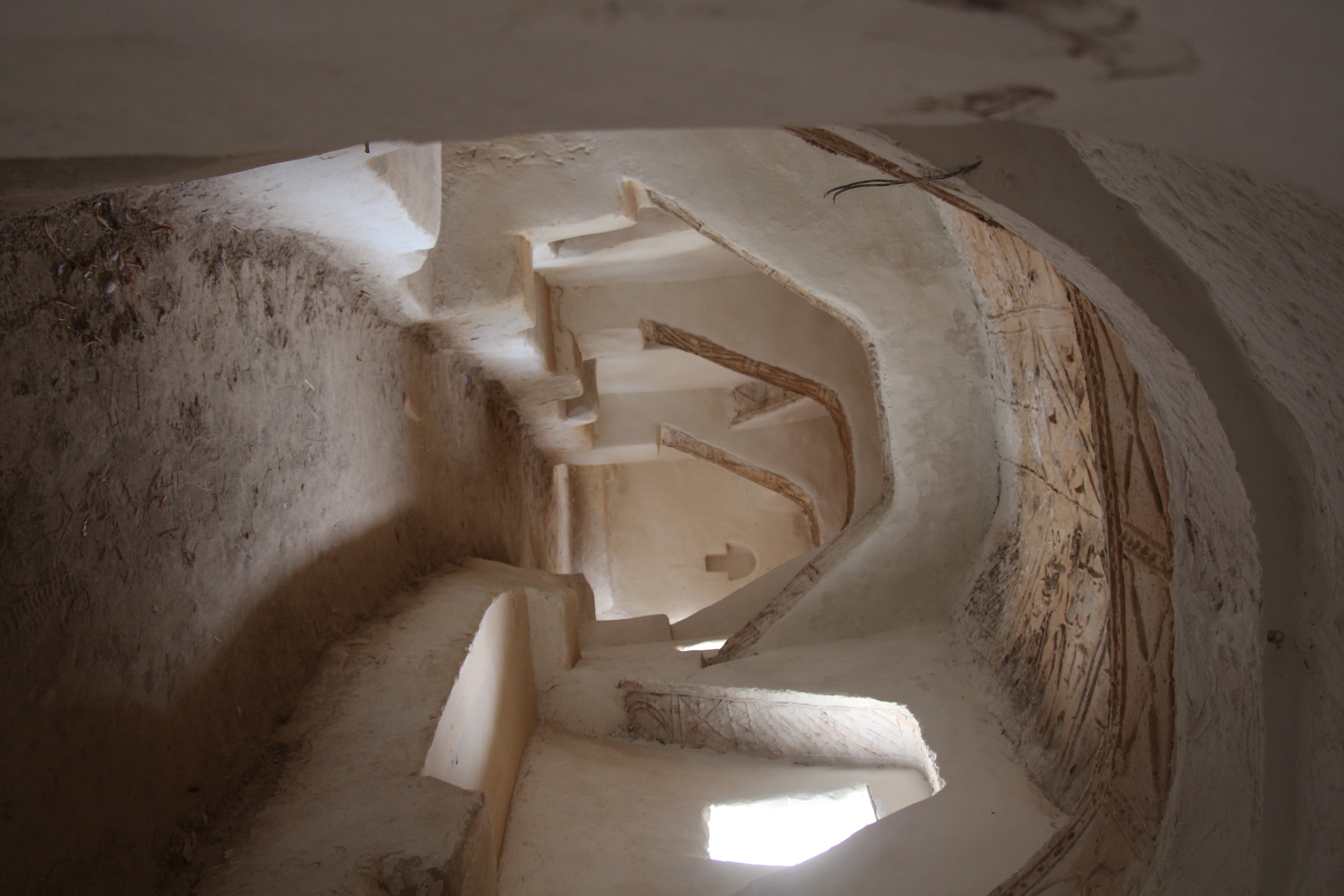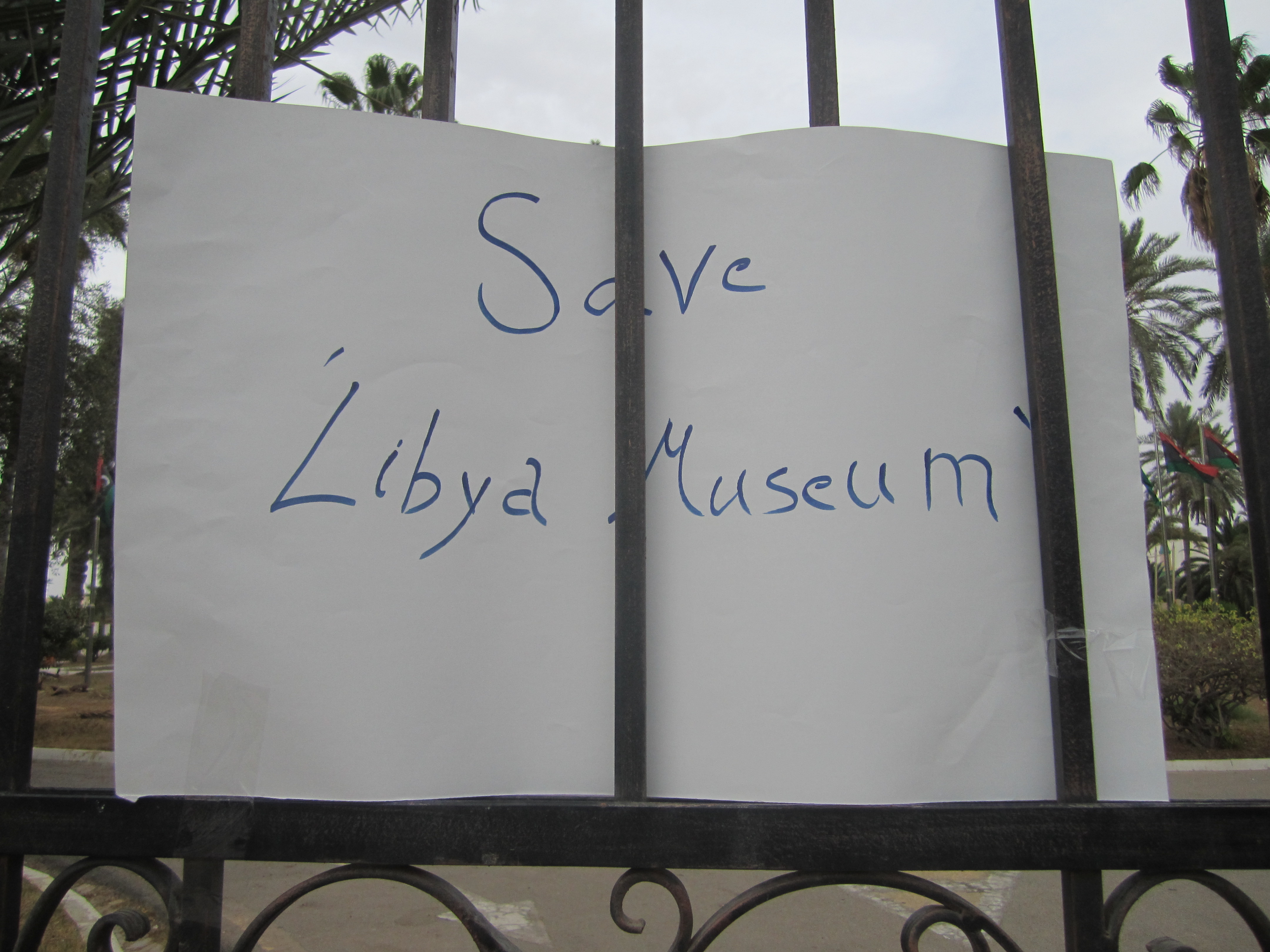By Francesca Marretta.

Tripoli, 13 September 2013:
The rusty desert plain stretches out, billiard-table flat, to a line of rocky hills on the . . .[restrict]far horizon. Stubborn patches of red scrub twitch in the fierce hot wind. Nothing else moves. Welcome to the Triangle.
This barren area of rock and sand, 300 miles south-west of Tripoli is where the borders of Libya, Algeria and Tunisia meet, and for the residents of the nearby city of Ghadames, it is also a curse.
“Ghadames itself is secure, our problems come from over the borders,” said senior adviser to the local city council, Kasem Al-Manee. “Even if you were to put a guard standing every hundred metres out in that desert you would not solve the problem. We need equipment and help.”

Manee was speaking at a seminar organised by the European Union Border Assistance Mission to Libya (EUBAM Libya), on its second visit to Ghadames. The two-day seminar, which attracted 72 particpants, focused on the importance of cooperation between border management agencies.
It included workshops on real-case scenarios, bringing experts from Italy and Sweden together with the city’s own security professionals. The participants, including 12 women, came from Border Guards, Customs and Police.
The programme was recognition that the city, cited as among the most beautiful in Libya, is facing a crisis. Its position, at the juncture of three borders, has made it a concentration point for cross-border smugglers, bringing with it fears of instability. And that fear has had an impact on what, before the revolution, was the city’s major source of income – tourism.
Its attractions are mesmerising for the first-time visitor. An ancient caravan stopping-point, at an oasis in the Sahara, the Old City of Ghadames is a tourist dream.
The town traces its heritage back to Roman times, when legions under the emperor Augustus first settled here at the desert oasis. Through the centuries the town grew and prospered because of the fresh water it offered, one of a handful of halts that allowed the great caravans to cross hundreds of miles of parched desert.
Clay houses with thick white and ochre walls are set among a labyrinth of narrow winding streets, taking the visitor back to ancient times. Palm trees drip with dates above homes richly-decorated with vivid reds enriched by pomegranate-flower dye.

The roofs of these exquisite homes were once used by women to move around the city, avoiding the attention of men in the streets below. Symbols carved into the walls often include the number three, which is believed to protect against evil.
Before the revolution, up to 30,000 tourists would flock to Ghadames every year, bringing it prosperity. Now, there is almost no tourism.
“In the last century in Ghadames there was the caravan trade, and the city could live without external support. Now the majority of the people here live thanks to government salaries,” says Manee. “We believe tourism is our best asset and we hope that by enhancing border security it can be revived.”
For EUBAM Libya, the task is clear – to provide specialist knowledge and expertise to boost a highly-motivated and professional security operation. For Ghadames, border security means revitalising the area and encouraging the tourists to return. The town’s senior officials were keen to point out that security within the city itself is already well-managed. The town’s elders ensured that weapons were collected and the town is well-policed.
The city had a dramatic revolution, joining the anti-Qaddafi uprising on 19 February 2011. Later in the conflict, however, Qaddafi’s army, aware of the town’s strategic importance, moved units into the town.
Today’s prominent town figures were wanted men. Manee spent four months in Tripoli’s notorious Blu Sleem prison and the Head of Sura Local Council, Habib al Buharihiba, hid in the Old City for four months. Their suffering has also been their inspiration, however, drawing them together and helping them make impressive strides in establishing security in Ghadames.
Among those committed to this task is Burnia Mahmood Sahed, one of the officers attending EUBAM Libya’s seminar. She joined the Libyan police 28 years ago and has a wealth of experience. Married to an architect, she is committed to creating a new and peaceful Libya for her five children.
“The most difficult thing for a female police officer is to be accepted in society,” she said. “To be accepted, a female officer must work much harder than a man.” As she spoke, other women at the seminar exchanged nods of agreement.
Ghadames officials do not lack experience. Customs captain Abdousar Mohammed Ali Hammoud has worked across Libya since 2004. “I have seen many things, I’ve worked in the south and on the Egyptian border,” he says, “I have witnessed smuggling of drugs, alcohol, gold, all sorts of things, but I now know we can do better.” eliminating smuggling, Manee said, was a top priority for the area, saying: “Concerning drug and weapons smuggling, our fears are even bigger than yours.”

Ghadames City Council hosted the workshops, with the support of Sura Local Council. The training focused on a range of techniques, from sophisticated data-interpretation and passport checking, to keeping files of fingerprints. “This seminar taught me about the importance of taking fingerprints when stopping people,” said one officer, “I simply never thought about it before.”
EUBAM Libya is deployed in the country at the invitation of the Libyan government, providing advice, training and mentoring. As Italian Border Guard advisor Giuseppe Colasanto said: “We are here to advise and train, but the job will be yours.”
Amid much hospitality, Ghadames delivered a final message to the EU. “When it comes to border protection we are in the same boat,” Manee said. “We believe in cooperation in this field and want increased interaction with our neighbouring countries.” He said that working together could help achieve the common goal of stability. It will also help secure Ghadames’ future as a tourist destination.
Francesca Marretta is the Press and Public Information Officer for EUBAM Libya. [/restrict]









